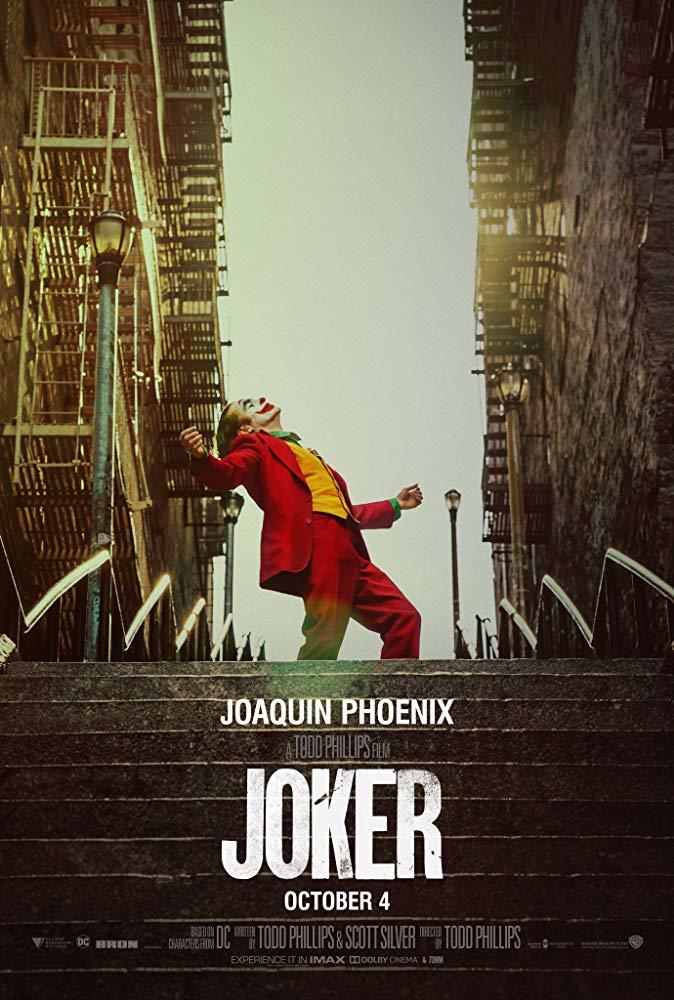
Dan Kois' response in Slate was representative. "From its dumb yellow title card to its antihero's dumb delusions of grandeur to its dumb absolute belief in its own transgressiveness, Joker is just as stupid as can be," Kois eloquently stated, perfectly capturing the hyper-articulate rage that has met Todd Phillips' movie's success.
Setting aside the dumb title cards, however, it is undeniable that "Joker" has struck a chord with all sorts of audiences, all of us living through our moment of populist resentment and anger.
It is a worldwide hit, topping charts in territories around the globe. Joaquin Phoenix's Arthur Fleck has served as an image of rebellion and uprising in protests from Hong Kong to Lebanon. And it's clearly a hit with the tastemakers in Hollywood, given that the Academy itself is the one that propelled "Joker" to its year-leading 11 nominations; perhaps they appreciate that someone did something different with the form and format of comic book movies.
Some of the critiques of "Joker" are understandable - it's derivative of early Martin Scorsese, borrowing riffs from "Taxi Driver" and "The King of Comedy"; Phoenix does the most acting but not necessarily the best acting - but these complaints miss the forest for the trees. "Joker" has won hearts and minds around the globe because it so strikingly reflects the unsettled moment in which we live.
Consider Fleck's distinctive tic in this movie, an inability to control his laughter in the face of emotional uncertainty. Fleck's choking, gasping guffaws are difficult to watch not solely because they reveal a man in pain but because they suggest a lack of bodily control mirroring the loss of societal control surrounding him. But that tonal difficulty, the inability to properly gauge how to respond to a world that has stopped making sense, represents the responses we see so often in social media and elsewhere. Inadvertent laughter masking impotent rage, Fleck is like a nihilistic rage-tweeter brought to life on the big screen.
Phoenix's boiling, burping cry-laughs are the only reasonable response to a world that has largely failed him, one in which social institutions have broken beyond repair. Of all the complaints about this film being some sort of reactionary screed, an incel's lament about the state of the world, it is more frequently stridently progressive. From the literal kill-the-rich message that permeates the picture to its condemnation of police violence, "Joker" is about the economic and social anxieties roiling our fair land on a day-to-day basis.
Beyond the individual elements, there's a structural critique at the heart of the movie, a suggestion that social collapse is as much the fault of local government's inability to care for those who cannot care for themselves. The city is drowning in trash, unable to pay for garbage removal to get the bags of filth off the street. Fleck himself is a victim of child abuse; city protective services proved unable to save him from his mother or her lovers. He is in need of psychological care, which is cut due to budget constraints. He is made to feel small by the media, his hero mocking him in front of the world.
We're living through a deeply strange moment. The world is undoubtedly safer and wealthier than it has ever been - crime remains near historic lows in the United States and employment is near full - and yet unhappiness everywhere is obvious. Deaths of despair are up.
Populist outrage spreads around the globe. Anger and resentment increase as people become less sure about their place in a changing world that either doesn't care for them or actively despises them. And the rest of us are stuck trying to reconcile a world that seems to be improving with a world that is tearing itself apart.
"Have you seen what it's like out there?" Fleck asks at one point. We have. And we can't make sense of it. Anarchic rage is as likely a response as anything else.
So sure, you can dismiss "Joker" as just another movie about an angry white man. Or you can try to understand why it resonates with audiences and filmmakers alike in an effort to figure out exactly what's going on in a world that is changing in ways some of us don't care for.
That is to say: You could treat it like the work of art it is rather than making it serve as a reservoir of your resentments.
Sign up for the daily JWR update. It's free. Just click here.
(COMMENT, BELOW)


 Contact The Editor
Contact The Editor
 Articles By This Author
Articles By This Author